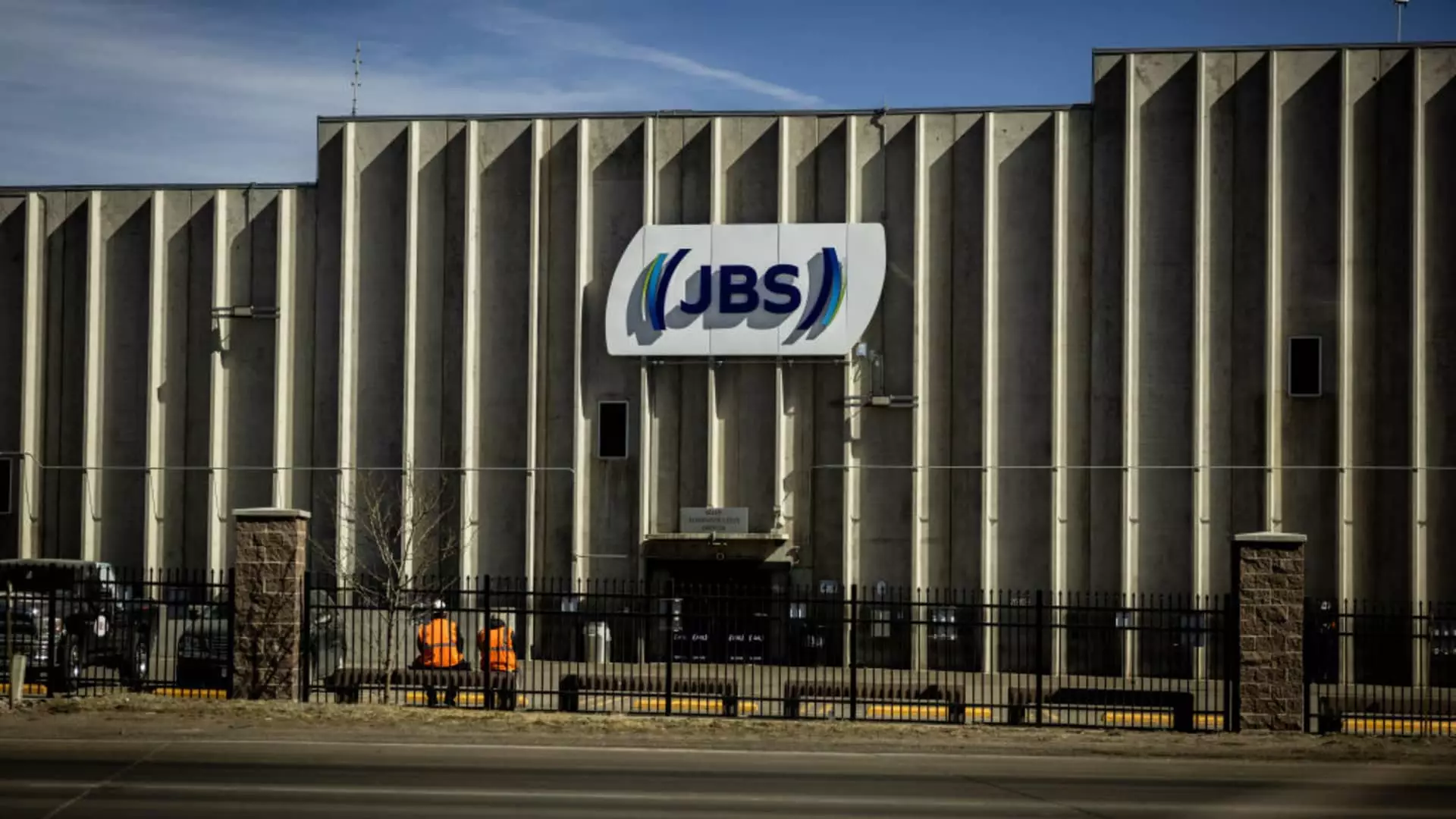In an era where corporate responsibility and ethical practices are increasingly scrutinized, the debut of JBS on the New York Stock Exchange at a staggering $13.65 per share raises eyebrows. Providing a market valuation of approximately $30 billion, the Brazilian meatpacking giant has surpassed rivals such as Tyson Foods, which is worth around $19.82 billion. However, JBS’s ascent to the pinnacle of the meat industry is entangled with a web of scandals, corruption, and ethical dilemmas that cannot be overlooked. As a center-right observer, it’s unsettling to witness a company of this magnitude making waves in financial markets without an adequate examination of its murky past.
A Twisted History of Bribery and Corruption
JBS’s history is marred by corruption scandals that continue to tarnish its reputation. The company’s former leaders, Joesley and Wesley Batista—who have navigated a minefield of bribery allegations—managed to evade prison time through cooperation with authorities. Their fraudulent activities sent shockwaves through Brazilian politics and the meat industry, revealing how deep the rot of corruption runs within JBS’s operations. In 2017, J&F Investimentos, the Batista family’s holding company, was slapped with a whopping $3.2 billion fine for bribery, a figure that highlights the egregiousness of their actions. As a nation rooted in traditional capitalism, this type of corporate governance is unsettling, as it demonstrates a rejection of fundamental ethical standards that underpin free markets.
Regulatory Scrutiny and Political Fallout
The hurdles that JBS faced on its road to U.S. public markets are emblematic of the broader challenges posed by its controversial history. Even with two separations from the Sao Paulo stock exchange and a well-documented story of misconduct, the U.S. Securities and Exchange Commission approved JBS’s listing just months ago. The backlash from lawmakers on both sides of the political spectrum serves as a warning that JBS has not fully shaken off the residue of its past. As they lined up to support—or oppose—JBS’s entry into the U.S. market, it became clear that accountability remains a vital concern for those entrusted with safeguarding our financial systems.
Should Politics and Corporate America Mix?
The ethical implications of JBS’s political donations, particularly the $5 million they contributed to President Donald Trump’s inauguration committee, further complicate their narrative. This strategic financial assistance raises questions about corporate influence in politics and the extent to which companies like JBS utilize financial power to secure favorable legislative outcomes. Such actions only reinforce a dangerous precedent wherein ethical considerations may be compromised for profit margins and market share. This lack of consideration for responsibility is precisely what illustrates why a cautious approach is needed when evaluating JBS’s triumph in the U.S. market.
Public Perception and Consumer Trust
In today’s socially conscious climate, where consumers are more informed than ever, JBS’s opening in U.S. markets presents serious challenges. Public sentiment often emphasizes environmental sustainability and ethical farming practices; JBS’s environmental violations, such as their involvement in illegal cattle purchases tied to deforestation in the Amazon, undoubtedly spark outrage and concern. Such actions pose a dramatic threat to consumer perception and trust, especially within a shifting landscape that favors brands with ethical portfolios. Consequently, as JBS continues to expand its operations globally, the need for genuine corporate responsibility becomes paramount—not just for their market valuation but for their very survival.
The Future of JBS: A Critical Crossroad
JBS’s new chapter in the New York Stock Exchange is marked by optimism, yet it is overshadowed by profound ethical concerns. The company stands at a critical crossroad where it must grapple with its historical legacy of corruption and adapt to an environment that increasingly prioritizes ethical business practices. As a center-right observer, I find it disturbing that profits can overshadow principles in such a blatant manner, jeopardizing the essential tenets of a free-market economy. If JBS hopes to thrive in the United States—a marketplace driven by consumer awareness—it must confront its past and prioritize transparency and accountability. As they forge ahead, one can only hope they learn that their actions will resonate far beyond the balance sheets and trading floors.


Leave a Reply